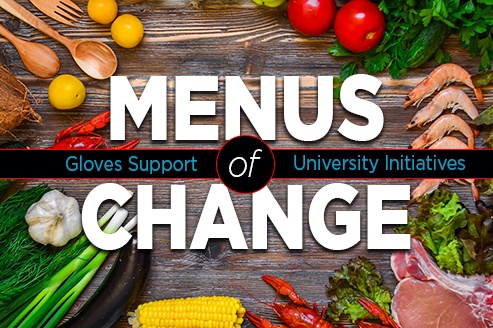 Universities are overhauling their food systems. The Menus of Change® (MOC) initiative is “the business of healthy, sustainable, delicious food choices.” Kudos to The Culinary Institute of America and Harvard T.H. Chan School of Public Health for undertaking this immense, but important initiative. Changing habits and getting people to think differently is no small project.
Universities are overhauling their food systems. The Menus of Change® (MOC) initiative is “the business of healthy, sustainable, delicious food choices.” Kudos to The Culinary Institute of America and Harvard T.H. Chan School of Public Health for undertaking this immense, but important initiative. Changing habits and getting people to think differently is no small project.
Two sections from the 2018 MOC Annual Report we found especially interesting, focus on public health and environmental stewardship. Here’s how Eagle Protect can help support universities’ mission to use foodservice to positively impact campuses and the world.
PUBLIC HEALTH
Researchers at Penn State University found* over half of all food poisoning cases come from restaurant-prepared food. The MOC encourages food safety operators to proactively address food safety. That’s where Eagle’s food safety expertise comes in.
Foodservice workers wear disposable gloves, which are commonly the last “tools” to touch food. An easy way to elevate food safety is looking at the quality and ingredients of these disposable gloves.
Are your gloves food safe? |
First off, vinyl gloves are not a food safe option. Why?
- Vinyl rip more frequently than nitrile - When gloves fail, bacteria and sweat inside the glove transfers to the food being handled.
- Food safety: Numerous studies have proven vinyl gloves have an increased permeability to bacteria and viruses.
- Toxins: Up to 50% of vinyl gloves are made up of plasticizers, which can contain phthalates (some known to cause cancer) and BPA. These chemicals can be absorbed by the glove wearer or leach into the food being handled.
Japan has banned the use of vinyl gloves for food handling since 2001 because of the proven link to adverse health effects. Don’t you say it’s about time we get them out of our kitchens too? Read more in Vinyl Gloves: Protection or Poison?
So what disposable glove should be used? We recommend a high quality nitrile glove to best support your food safety efforts. Why is quality important?
Eagle Nitrile Gloves
- Decreased Cross-Contamination Potential: Eagle Sensitive nitrile gloves have a proven 3 times lower cross-contamination potential than vinyl gloves.
- Stronger: High quality materials make high quality gloves, which stretch farther and rip less.
- Less Chemicals: Do not contain phthalates or BPA.
- Quality Tested: AQL of 1.5, meaning our gloves perform to medical grade standards and rarely come out of the box ripped. Sadly, most “food grade” gloves are not tested and there are no quality requirements.
Read more about vinyl vs nitrile gloves in our Refrigerated & Frozen Foods article.
Food safety starts with transparency. Supply chain transparency will provide a leap forward towards understanding where food and the equipment used to prepare it comes from, and also mitigates the risk of glove fraud. Child Labor Free* manufacturing is one of many bright spots in the Eagle Protect™ supply chain.
ENVIRONMENTAL STEWARDSHIP
In addition to food safety MOC also focuses on environmental stewardship. So does Eagle! An added bonus of higher quality disposable nitrile gloves is that they fail less frequently, which will reduce:
- Overall glove use
- Glove disposal waste
- Shipping container & truck emissions needed to transport gloves
- Cardboard packaging, since less gloves will be used
- Water needed in glove manufacturing
Using nitrile will also reduce toxic emissions as the manufacturing and disposal of PVC leads to the release of dangerous quantities of dioxin and other carcinogenic emissions.
From food safety to environmental responsibility, there are many reasons to use high-quality nitrile disposable gloves! Let’s talk.
*The organization behind Child Labor Free has ceased offering accreditation renewal, effective December 2020.


